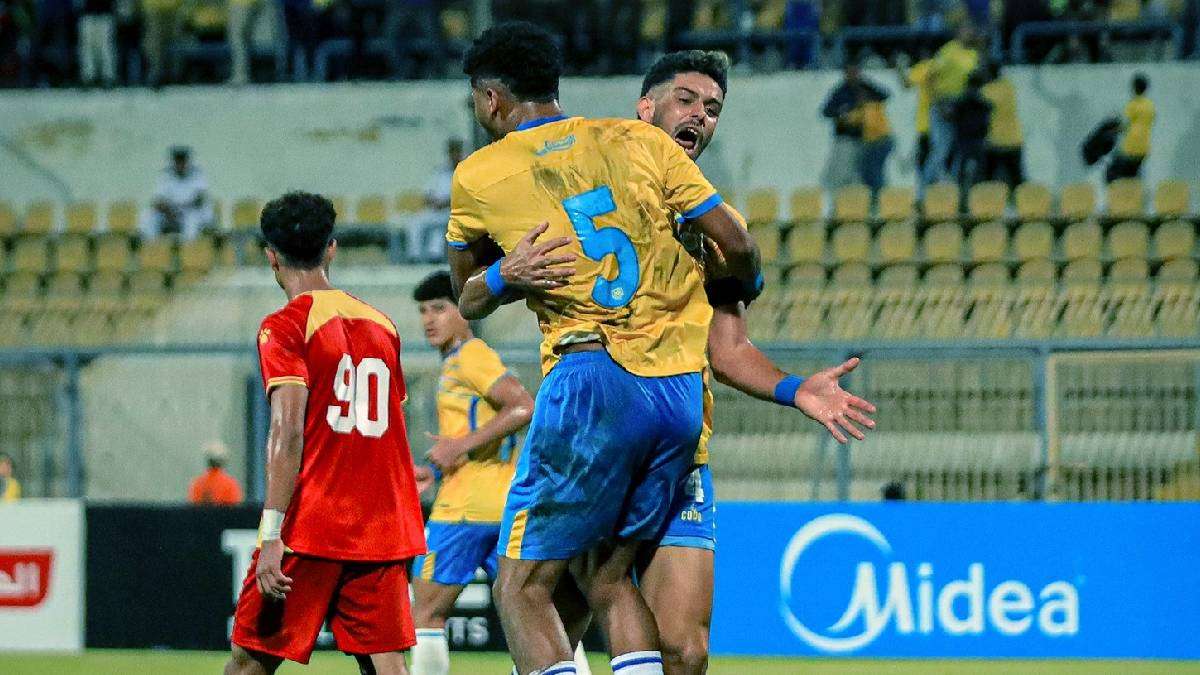Ismaily Shake-Up: Egypt’s Minister Suspends Board and Opens Investigation
20 October 2025

What happened
In a bold move, Dr. Ashraf Sobhi, Egypt’s Minister of Youth and Sports, ordered the Ismaily SC board, led by Nasser Abu Hassan, to be referred to the public prosecutor for investigation. This followed findings from financial and administrative audits and signals a broad crackdown on governance at the club.
The ministry’s spokesperson, Mohamed El Shazly, stated that Sobhi issued a decree to suspend and remove the club’s board, the chief executive, the chief financial officer, and the head of sports activities, sending all of them to the prosecutor for examination of flagged violations. The decree also barred the current board from serving until investigations conclude or their term ends, whichever comes first.
To ensure continuity, a temporary committee will oversee Ismaily’s operations until the next general assembly, with the Ismailia Directorate of Youth and Sports entrusted to manage day-to-day affairs in the interim. The aim is to preserve stability while maintaining a cadence of accountability and transparency that supporters, players, and staff deserve. And yes, the bureaucracy is a little less glamorous than a trophy parade, but it’s supposed to be thorough—like a VAR review you actually want to watch.
The minister further directed immediate coordination with Ismailia Governorate and the Suez Canal Authority to secure sponsorship programs from private-sector partners, ensuring stable income during this critical transition. The move signals a push to stabilize finances without delaying the club’s core mission: competing with dignity and keeping fans hopeful.
Ismaily had previously opened a donations drive to rescue the club from a serious cash squeeze that had left players unpaid and had contributed to FIFA’s suspension of transfers in certain categories. In this climate, every cent counts, and the public is watching with a mix of concern and cautious optimism.
Five board members who had been ousted had already submitted resignations earlier: Ahmed Fahim, Ahmed Abdul Rahman, Khaled Shouqi, Mohsen Abdul-Masih, and Mohamed Gamal. Their departures, coupled with ongoing criticisms of leadership and mounting financial pressures, accelerated the government’s intervention as divisions within the management became harder to reconcile.
What happens next
Early reports suggest the interim leadership could feature Ali Ghit, a former Ismaily player and administrator with wide fan support, along with Hosni Abder Rabba (a prominent former captain) and Ali Abu Greecha, all viewed as capable of uniting the club. The committee’s duties would include reordering internal governance, securing funding, negotiating with sponsors, and providing technical and moral support to the first team during this delicate period.
The ministry indicated that the interim setup would also prioritize financial restructuring, while negotiating with sponsors to ensure more stable revenue streams and fairer pay structures for players and staff. Sobhi has scheduled a high-level meeting with the Egyptian Football Association’s president and the Unified Sports Company to discuss long-term plans for national team development and broader sports governance reforms.
A source cited by Kooora noted that the timing of the intervention partly reflects disappointing results from youth and junior national teams, even as neighboring Morocco enjoyed a landmark youth title—an external reference that underscores the need for robust governance and effective administration across the sport in Egypt.
Reaction and immediate outlook The ministry’s actions are framed as a bid to restore trust and compliance, with a focus on restoring the club’s standing among fans, players, and partners. While the optics can be challenging, this is presented as a pathway to sustainable accountability rather than a punitive shutdown—think of it as a reset button for the club’s books and culture.
Global context and highlights
In a related arc of activities, Sobhi congratulated Morocco’s under-20 team on its historic World Cup win, describing it as a source of pride for Arabs and a testament to developing young talent. The minister also participated in the COP10 conference in Paris (October 20–22, 2025), organized by UNESCO, where he emphasized the importance of international cooperation to address climate and environmental challenges affecting sport and youth programs. His remarks stressed the integration of sustainability and green strategies into national sports planning as part of Egypt’s 2030 vision.
Egypt’s health and Paralympic communities also gained attention: Sobhi praised the Paralympic weightlifting team for securing a landmark third place at the World Championships held in the New Administrative Capital, a first-time African-hosted edition. The squad earned seven senior medals (two golds, one silver, four bronzes), with the country tally reaching 20 medals when including the junior team’s results. The federation’s leadership committed to continuing support for Paralympic athletes ahead of Los Angeles 2028.
The ministry stressed the ongoing commitment to strengthening national sport’s leadership, ensuring that governance reforms translate into better performance on the field and more sustainable opportunities off it. And if you’re wondering whether all this translates into better football, the answer is: time will tell, but the ball is now in a more transparent court.
Punchlines for the road: If governance were a football match, the ref would finally call offside on a crowded boardroom. And remember: in football and reform alike, the true highlight reel is not the drama—it's the steady, boring, honest progress that follows. Now that’s what I call a tactical plan with actual passes.



